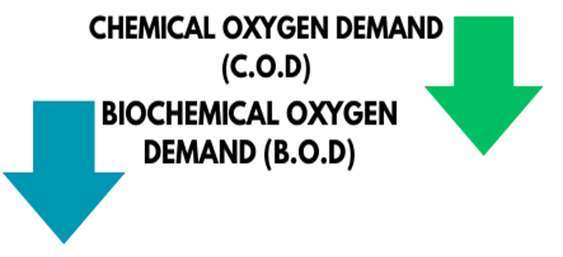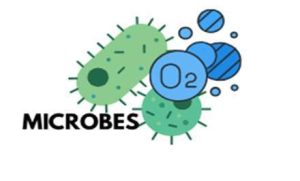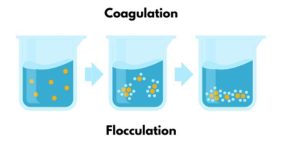COB BOD Reduction Parameter Malaysia
Wastewater treatment is a multi-stage process, with each phase designed to eliminate specific contaminants. In wastewater treatment, COD (Chemical Oxygen Demand) and BOD (Biological Oxygen Demand) are key parameters used to measure the organic pollution load. Reducing COD and BOD is crucial for ensuring treated water meets environmental discharge standards. High COD and BOD levels in effluent deplete oxygen from receiving waters, ultimately harming aquatic ecosystems.
Chemical Oxygen Demand (COD) is a critical wastewater parameter that measures the total amount of oxygen needed to chemically oxidize all organic and inorganic matter, both dissolved and suspended. At Cubictech, our expertise in standardized COD determination methods ensures consistent, reliable analysis, providing clients with trustworthy data to optimize their treatment systems.
On the other hand, Biochemical Oxygen Demand (BOD) represents only the biodegradable fraction of the organic load. Unlike COD, which accounts for all oxidizable substances, BOD specifically quantifies the oxygen consumed by microorganisms as they break down organic matter over time. Essentially, BOD is a subset of COD, reflecting the biologically active portion of wastewater pollution. Regularly monitoring wastewater quality against regulatory limits is essential to avoid violations and environmental harm.
The need for COD and BOD Reduction in Wastewater Treatment
 Reducing organic pollutants in wastewater is essential to producing clean, safe effluent. This process breaks down complex organic compounds into simpler, less harmful substances.
Reducing organic pollutants in wastewater is essential to producing clean, safe effluent. This process breaks down complex organic compounds into simpler, less harmful substances.
By lowering COD (Chemical Oxygen Demand) and BOD (Biochemical Oxygen Demand), engineers can minimize the environmental impact of wastewater discharge, safeguarding aquatic ecosystems and public health.
Advanced treatment technologies, including biological processes (such as activated sludge and anaerobic digestion) and chemical methods (such as oxidation and coagulation), play a vital role in achieving efficient and sustainable pollutant removal.
Microbial Action: Nature’s Solution for Organic Waste Removal
 One of the most efficient ways to reduce BOD and COD in wastewater is by leveraging controlled microbial degradation. Specially selected bacteria and microorganisms are introduced to break down soluble organic matter, using oxygen to convert pollutants into simpler compounds that either settle or progress through subsequent treatment stages.
One of the most efficient ways to reduce BOD and COD in wastewater is by leveraging controlled microbial degradation. Specially selected bacteria and microorganisms are introduced to break down soluble organic matter, using oxygen to convert pollutants into simpler compounds that either settle or progress through subsequent treatment stages.
This natural, eco-friendly approach minimizes reliance on chemicals, cutting operational costs while enhancing treatment efficiency. However, success depends on optimal conditions, including temperature, pH, and the absence of inhibitory pollutants. Proper microbial management ensures maximum degradation while maintaining system stability.
Activated Carbon: Advanced Adsorption for Stubborn Contaminants
In post-treatment, activated carbon effectively absorbs persistent organic compounds, ozone, and chlorine residues, particularly useful for non-biodegradable pollutants (e.g., pharmaceuticals). While highly effective, its drawbacks include higher energy use and costs compared to biological methods. For comprehensive treatment, pairing activated carbon with microbial digestion ensures both biodegradable and recalcitrant pollutants are addressed.
Wastewater Separation: Coagulation & Flocculation
 During primary treatment, coagulants (e.g., alum, ferric chloride) neutralize negatively charged particles, forming micro-clumps. Flocculants (e.g., polymers) then bind these clumps into larger settleable flocs, which are removed via filtration or sedimentation. Coagulation & flocculation rapidly remove suspended solids and colloidal organics.
During primary treatment, coagulants (e.g., alum, ferric chloride) neutralize negatively charged particles, forming micro-clumps. Flocculants (e.g., polymers) then bind these clumps into larger settleable flocs, which are removed via filtration or sedimentation. Coagulation & flocculation rapidly remove suspended solids and colloidal organics.
In addition, the wastewater separation methods minimize microbial competition for oxygen, enhancing downstream BOD treatment. It’s critical for treating high-strength or industrial wastewater. Combining biological, physical, and chemical strategies ensures the complete removal of organic pollutants, meeting regulatory standards while optimizing cost and efficiency.
Final thoughts
Cubictech delivers customized wastewater treatment solutions designed for your specific needs in Malaysia. Our team of experts will help you select the ideal equipment and methods to minimize COD and BOD, ensuring optimal water quality. We have more than a decade of experience, successfully delivering hundreds of water treatment projects in Malaysia and beyond.
We also distribute products such as industrial process pumps, process equipment, sensor and instrument, analyser system, chlorination equipment and filtration equipment.
Due to our extensive network in sourcing products and equipment, we also have a strong global procurement team helping our clients to source specialty products. In the event that our clients are sourcing for good quality products but at a competitive pricing, we also have our own in-house brand, DeTitan to cater for their demand. Besides, we also help our clients to do rebranding so they are perceived as more professional and environment-friendly.
Related Articles
- Chemical Dosing Skid And Manifold Malaysia
- Chemical Process Tank Malaysia
- Commercial Reverse Osmosis System Malaysia
- Commercial Wastewater Systems Malaysia
- Commercial Water Treatment System Malaysia
- Factory Waste Treatment Malaysia
- Gas Chlorination Systems Malaysia
- Industrial Effluent Treatment System (IETS) Malaysia
- Industrial Filter And Screens Malaysia
- Industrial Wastewater Solution / Systems Malaysia
- Industrial Water Purification Systems Malaysia
- Johnson Wedge Filter (Customized Filter) Malaysia
- Sewage System Malaysia
- UV Industrial Water Treatment Malaysia
-
- Well Filtration System Malaysia
- COB BOD Reduction Parameter Malaysia
- Department Of Environmental (DOE) Water Standard Submission Malaysia
- Industrial Water Treatment Malaysia
- Wastewater Engineering and Construction Malaysia
- Wastewater Management Plant Malaysia
- Water Treatment and Recycling Malaysia
- Effluent Treatment Plant Malaysia
- Heavy Metal Water Treatment Malaysia
- Industrial Reverse Osmosis System Malaysia
- Industrial Ultrafiltration (UF) System Malaysia
- Industrial Wastewater Treatment Malaysia
- Industrial Water Filters Malaysia
- Municipal Water Treatment System Malaysia
- POME Treatment Malaysia
- Portable Container Treatment System Malaysia
- Residential Water Treatment Malaysia
- Sealless Magnetic Drive Pump Malaysia
- Sewage Treatment Plant Malaysia
- Titanium Water Filter Cartridge Malaysia
- Water Treatment Automation Dosing System Malaysia
- Piping Tank Fabrication Installation Works Malaysia
- Wastewater and Water Treatment Design and Build Malaysia
- Wastewater Treatment Plant Design / Build / Commissioning Malaysia
- Wastewater Treatment Process Instruments Malaysia
- Water & Wastewater Treatment Malaysia
